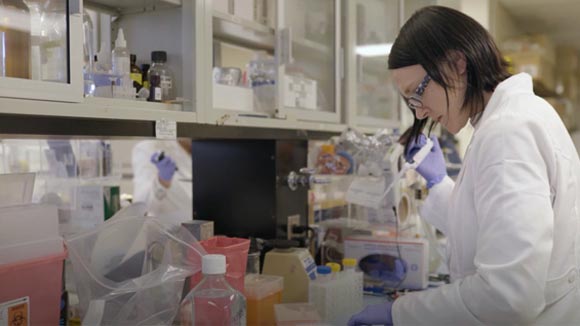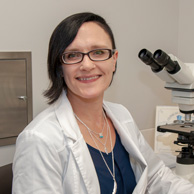Medicine Institute Research Program
Clinical studies are incredibly important to the advancement of medicine. They help to discover new treatments for diseases, test the effectiveness of new, life-improving technologies, and increase our understanding of the human body.
Through the dedication of the doctors and volunteers, countless people have been able to live longer, healthier lives.

Types of research
In the Medicine Institute Research Program, we conduct 3 basic types of studies: Clinical Trials (interventional), Observational Studies (non-interventional), and Bench Studies (in the laboratory).
Clinical Trials
Clinical Trials involve volunteers receiving specific interventions under a predetermined set of conditions. These “interventions” can be new medical devices, medications, or even just a change of diet or sleeping habits. The researchers then study the safety, effectiveness, and outcomes of the intervention.
Observational Studies
With Observational Studies, groups of volunteers are usually assessed, but they are not asked to try a specific medicine, devices, or other intervention during the trial. For example, a group of males over 40 may be asked to participate in an Observational Study in order to learn how different lifestyles effect cardiac health.
Bench Studies
Bench Studies, sometimes called In Vitro Studies, take place solely in the lab. They use test tubes, Petri dishes, and usually don’t require volunteers to be present. However, donated blood or organic material are sometimes needed.
Frequently asked questions
Are clinical trials safe?
Clinical trials have a number of safety measures in place. They are always administered by qualified medical professionals and participants are closely monitored in order to catch any safety issues. Participants are also given information on the risks, potential benefits, and alternatives so that they thoroughly understand everything that will happen. Participants may withdraw from a study at any time, even if the study is not over.
What is a Placebo?
In some studies, participants are given a substance or treatment that looks like the real thing, but it’s not. It’s just a look-alike. Usually, the person receiving the placebo is unaware. This is an important part of any experiment because they help prove that the “real” treatment is having an effect and that the effect is not being caused by something else, like environmental factors.
Meet our researchers
At AHN, our researchers are motivated by the prospect of improving the lives of patients like you. Meet some of the researchers for the Medicine Institute and hear in their own words why they each decided to devote their lives to research.

Nephrology Investigator
“The human body is such a complex maze that to this day there is so much to explore. With years of hard work and perseverance, researchers have tried to unfold the mystery of life. Each new discovery or invention opens gates for many more questions which then leads to more research and development. In simple words, I enjoy the vicious cycle of query in my mind .. more queries after researching .. that motivates me to do more research!!
These are extremely rare diseases and there is so much to discover such as new markers of inflammation or targeted therapy to control the disease that I feel there will be light at the end of the tunnel if we all join hands and work hard with enthusiasm for more and more research and development.”

Nicole Wilson
Associate Director of Bioinformatics and Research Coordinator
“I do research to provide diverse volunteers with the opportunity to shape medical history. Current medications and treatments started with research.”

Erin Faight
Laboratory Research Associate
“It is exciting to learn something that you never knew before, and to constantly search for new pieces of this complex puzzle that is Lupus and autoimmune disease. It is even more exciting to know that by adding new pieces I can be a part of making someone’s life better.”
Contact us
Email miresearch@ahn.org to learn more about the AHN Medicine Institute Research Program.
-
Contact Us
Medicine Institute Research Program
By accessing this video, I understand that I am leaving the AHN website and I will be re-directed to an external website operated by a third party platform provider. I acknowledge that the platform provider may collect personal information about me, and about the video that I view, on their platform and may use and disclose this information in accordance with its privacy policy. I agree that Allegheny Health Network is not responsible for the data collection and use practices of this third party.

